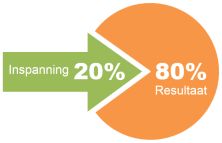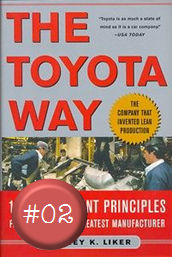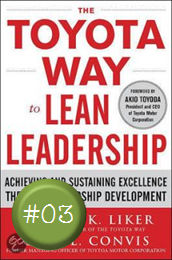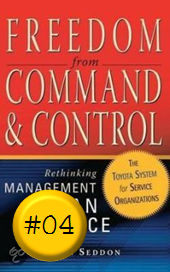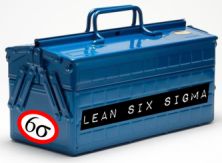In het artikel Managing for Business Effectiveness beschrijft Peter F. Drucker het Pareto-principe:
![]()
Business enterprise is not a phenomenon of nature but one of society. In a social situation, however, events are not distributed according to a ‘normal distribution’ of a natural universe ... In a social situation a very small number of events at one extreme—the first 10 percent to 20 percent at most—account for 90 percent of all results; whereas the great majority of the events accounts for 10 percent or so of the results.
This is true in the marketplace: A handful of large customers out of many thousands produce the bulk of orders; a handful of products out of hundreds of items in the line produce the bulk of the volume; and so on.
It is true of sales efforts: A few sales people out of several hundred always produce two-thirds of all new business. It is true in the plant: A handful of production runs account for most of the tonnage.
It is true in research: The same few people in the laboratory are apt to produce nearly all the important innovations.
It holds true for practically all personnel problems: The bulk of grievances always comes from one group of employees (for example, from the older, married women or from the clean-up people on the night shift), as does the great bulk of absenteeism, of turnover, of suggestions under a suggestion system and accidents.
Bron: Managing for Business Effectiveness, Peter F. Drucker






